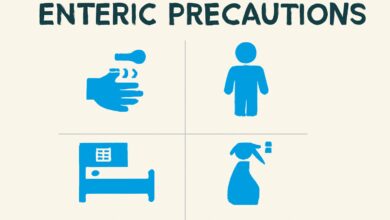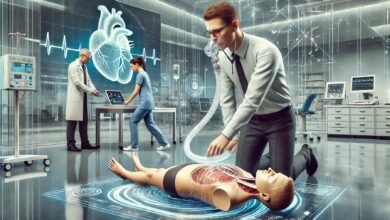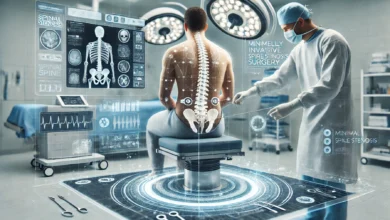Why Do I Get a Headache After I Eat? Exploring the Causes and Solutions
Understanding Post-Meal Headaches and How to Prevent Them

Introduction
Headaches after eating, often referred to as “postprandial headaches,” can be a frustrating and uncomfortable experience. These headaches can occur shortly after a meal, leaving individuals wondering about the causes and how to prevent them. Whether it’s the foods you consume, your eating habits, or underlying health conditions, several factors could be at play. In this article, we will explore the common reasons for headaches after eating, possible triggers, and ways to manage and avoid these painful episodes.
What Are Postprandial Headaches?
A postprandial headache is a headache that occurs after eating. It typically starts shortly after a meal and can last anywhere from a few minutes to several hours. While this headache may seem to be a result of overeating or poor food choices, there are numerous factors that can contribute to these post-meal headaches.
Common Causes of Headaches After Eating
Headaches after eating can arise due to a variety of reasons, including food-related triggers, blood sugar fluctuations, and even physical conditions. Below are some of the most common causes:
1. Reactive Hypoglycemia (Low Blood Sugar)
One of the most common causes of headaches after eating is reactive hypoglycemia, or low blood sugar. This condition occurs when blood sugar levels drop too quickly after a meal, typically within two to five hours. Symptoms of reactive hypoglycemia include dizziness, irritability, and, of course, headaches. People who consume large amounts of refined sugars or carbohydrates are particularly at risk for this type of headache.
2. Food Triggers and Intolerances
Certain foods can trigger headaches in some individuals. These include:
-
Tyramine-rich foods: Aged cheeses, cured meats, and fermented products contain tyramine, a compound known to cause headaches.
-
Processed foods: Foods high in preservatives, such as processed meats and canned soups, may cause headaches due to additives like MSG (monosodium glutamate).
-
Chocolate and sugar: Some people find that chocolate or foods high in sugar can trigger migraines or headaches, likely due to fluctuations in blood sugar.
-
Gluten or lactose intolerance: Food intolerances, like lactose intolerance or gluten sensitivity, can also lead to headaches after eating.
3. Dehydration
Not drinking enough water or consuming a meal that is too salty can lead to dehydration, which is a known trigger for headaches. When your body is dehydrated, it can cause a reduction in blood flow to the brain, leading to a headache.
4. Caffeine Withdrawal
If you regularly consume caffeine and then skip your usual cup of coffee or tea, you might experience a caffeine withdrawal headache. This type of headache can occur a few hours after a meal if you have missed your daily caffeine intake.
5. Overeating or Eating Too Fast
Eating large meals quickly can lead to discomfort and trigger headaches. When you overeat, the body diverts more blood to the digestive system, which can cause a reduction in blood flow to the brain. This can lead to a tension headache or a migraine in some individuals.
6. Stress or Jaw Clenching
Stress can be a significant factor in post-meal headaches. If you are anxious or tense while eating, you may clench your jaw, which can trigger tension headaches. This is particularly common in individuals with TMJ disorders (temporomandibular joint disorders), which can cause jaw pain and headaches after eating.
7. Migraine Triggered by Food
Certain foods, such as chocolate, wine, and cheese, can trigger migraines in people who are prone to them. The compounds in these foods, such as histamine or nitrates, can dilate blood vessels in the brain and trigger a migraine attack.
Foods That Commonly Cause Headaches After Eating
Different foods can be associated with specific types of headaches. Some of the most common food-related triggers include:
-
Cheese (due to tyramine)
-
Processed meats (containing nitrates and MSG)
-
Chocolate (due to caffeine and theobromine)
-
Alcohol (especially red wine, due to histamine and sulfites)
-
Caffeinated beverages (withdrawal headaches)
-
High-sugar or high-carb foods (leading to fluctuations in blood sugar)
-
Dairy (for those with lactose intolerance)
Managing and Preventing Post-Meal Headaches
Here are some practical tips to help prevent headaches after eating:
1. Eat Balanced Meals
To prevent headaches caused by blood sugar fluctuations, aim to eat balanced meals containing protein, healthy fats, and complex carbohydrates. Avoid foods that cause quick spikes and drops in blood sugar, such as sugary snacks or refined carbohydrates.
2. Stay Hydrated
Dehydration is a common headache trigger, so ensure that you drink enough water throughout the day. If you eat salty meals, make sure to compensate by drinking extra water to avoid dehydration.
3. Avoid Food Triggers
If you notice that certain foods trigger headaches, try to avoid or reduce your intake of these items. Keeping a food journal can help identify which foods are causing the headaches.
4. Eat Smaller, More Frequent Meals
Instead of eating large meals, try eating smaller portions throughout the day. This helps maintain stable blood sugar levels and reduces the chances of triggering a headache.
5. Slow Down While Eating
Eating too fast can lead to discomfort and headaches. Take your time to chew your food properly, and avoid overeating. This can also help prevent bloating and indigestion.
FAQ About Post-Meal Headaches
Q1: How can I tell if my headache is caused by food?
You can track your meals and headaches to see if there is a pattern. Keeping a food journal and noting when headaches occur can help you identify food triggers.
Q2: Are post-meal headaches a sign of something serious?
In most cases, post-meal headaches are not a sign of a serious medical condition. However, if they occur frequently or are accompanied by other symptoms like nausea or dizziness, it’s important to consult a healthcare provider.
Q3: Can dehydration cause headaches after eating?
Yes, dehydration can lead to headaches, especially after consuming salty or processed foods. It’s important to stay hydrated before, during, and after meals.
Q4: Can caffeine withdrawal cause headaches after eating?
Yes, if you consume caffeine regularly and suddenly reduce your intake, you may experience headaches, even after eating. This is due to caffeine withdrawal.
Q5: How can I prevent a headache after eating sugar or chocolate?
To prevent headaches caused by sugar or chocolate, try eating smaller portions, pair them with protein or fiber-rich foods, or avoid them entirely if they are known triggers.
Conclusion
Headaches after eating, also known as postprandial headaches, can stem from a variety of causes, including blood sugar fluctuations, food sensitivities, dehydration, and stress. By understanding the underlying factors that contribute to these headaches, you can take steps to manage and prevent them. Whether it’s adjusting your diet, eating habits, or lifestyle, a few simple changes can help you avoid this uncomfortable condition and improve your overall well-being. If headaches persist or worsen, it’s always advisable to consult with a healthcare provider to rule out any underlying medical conditions.



